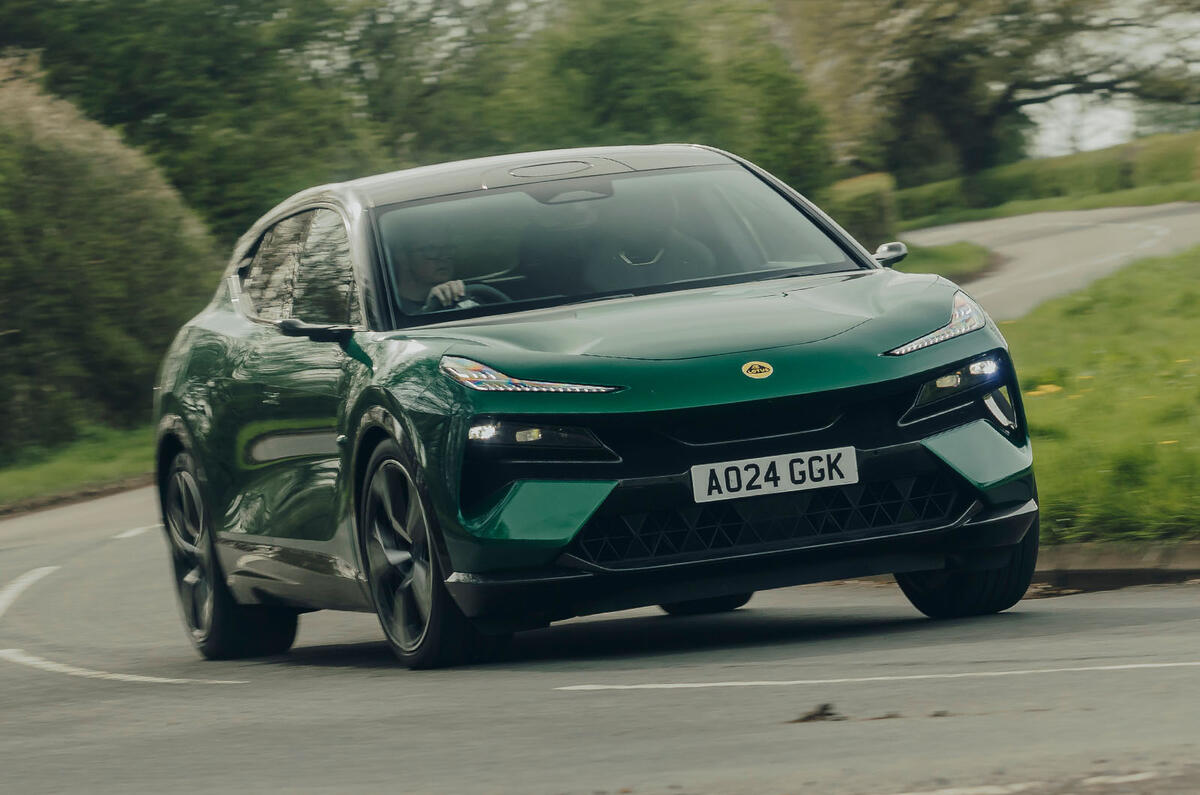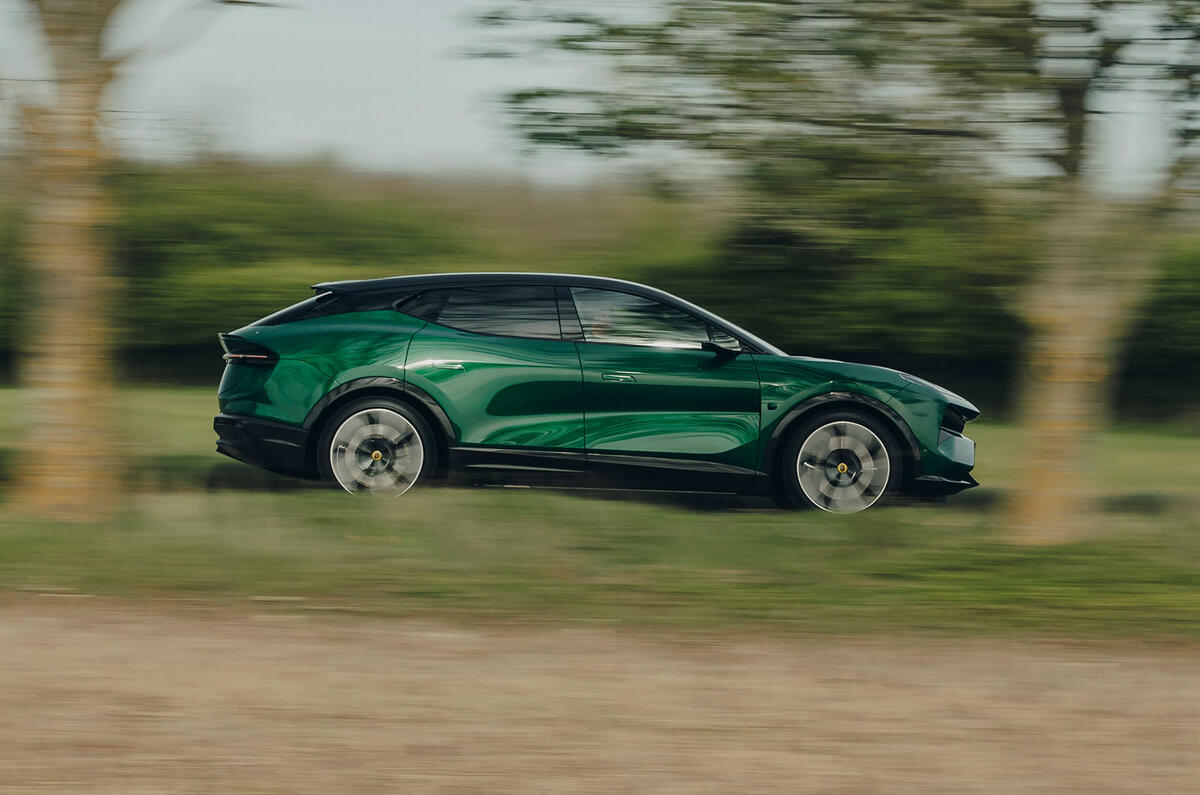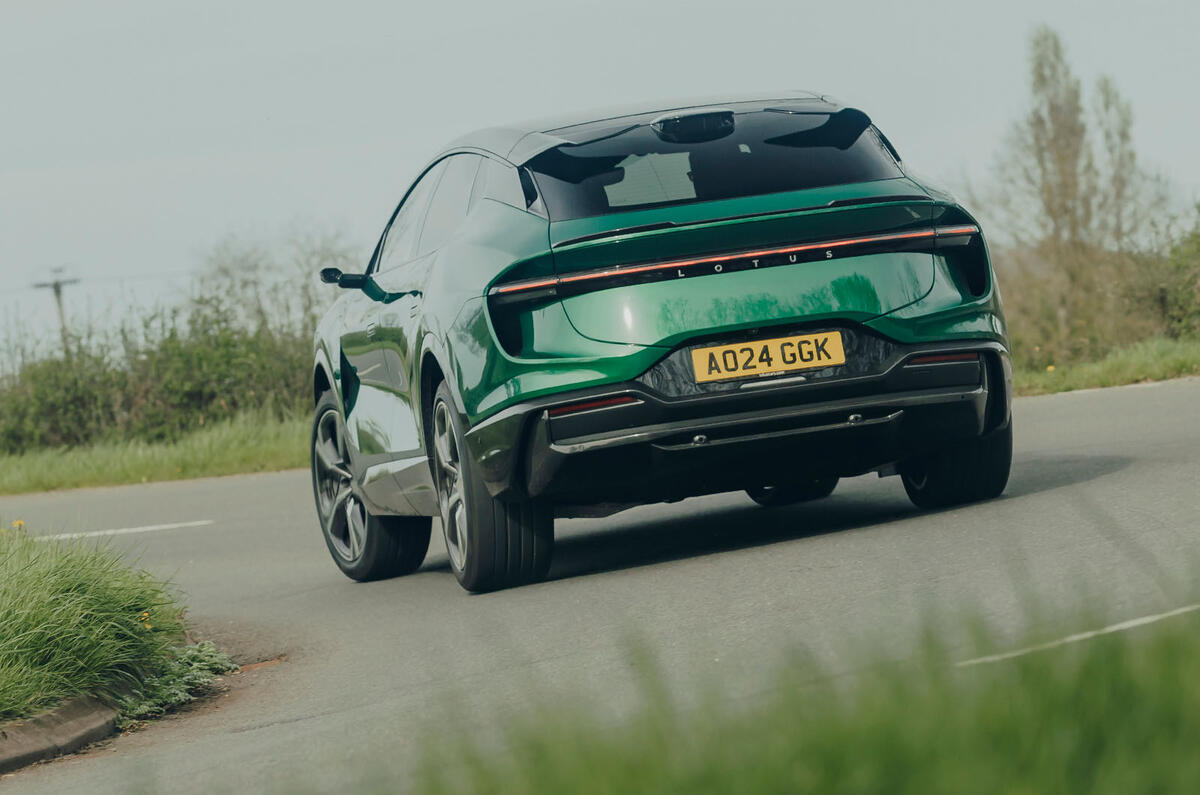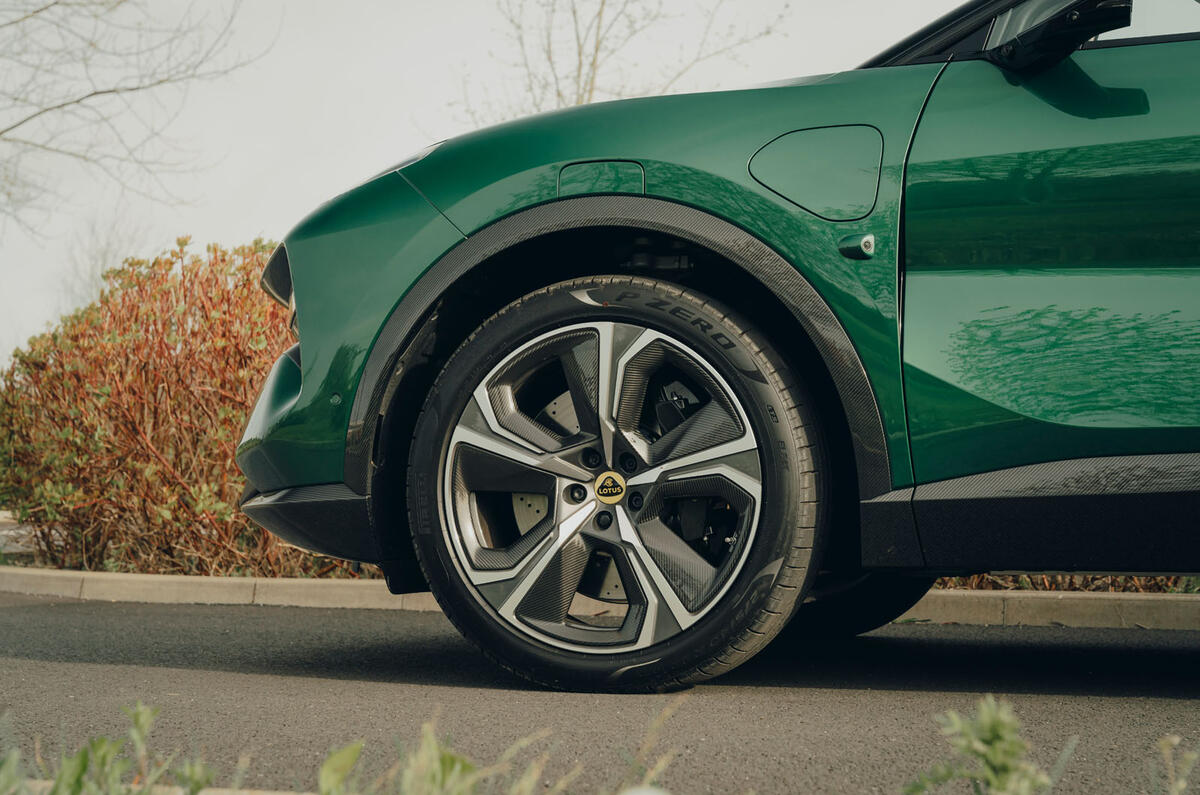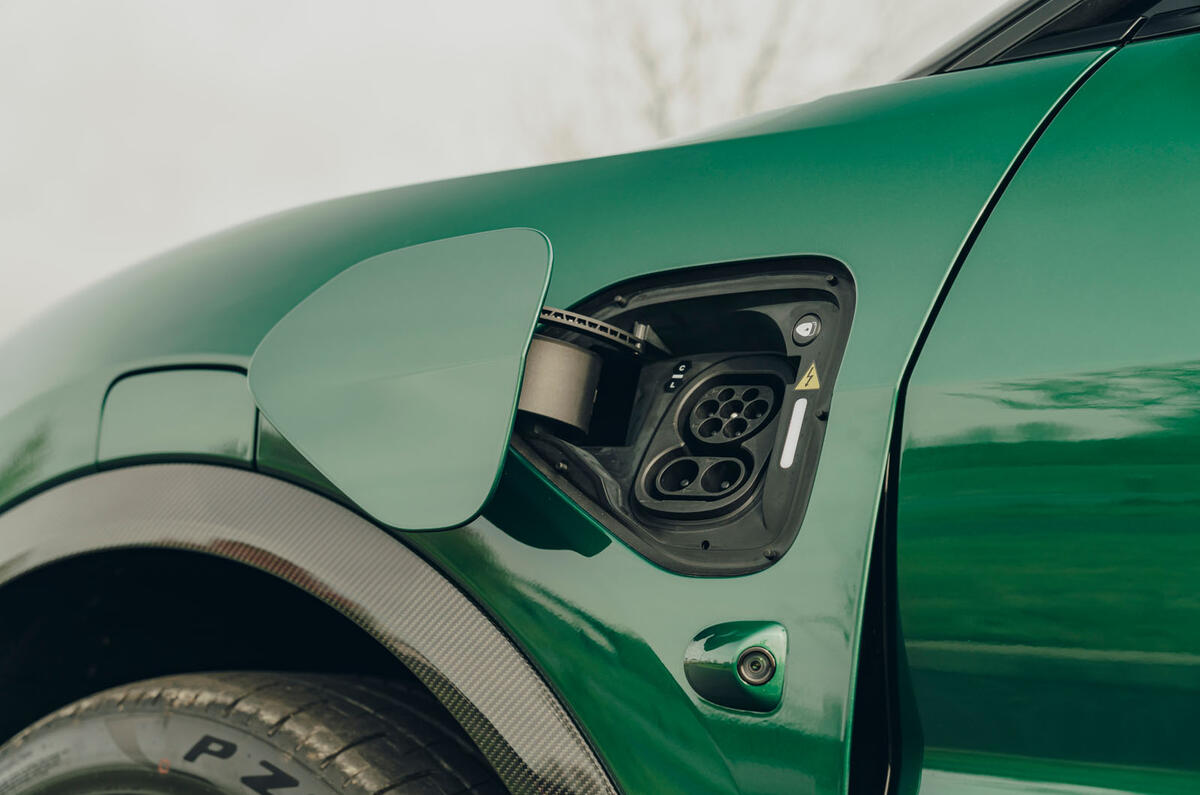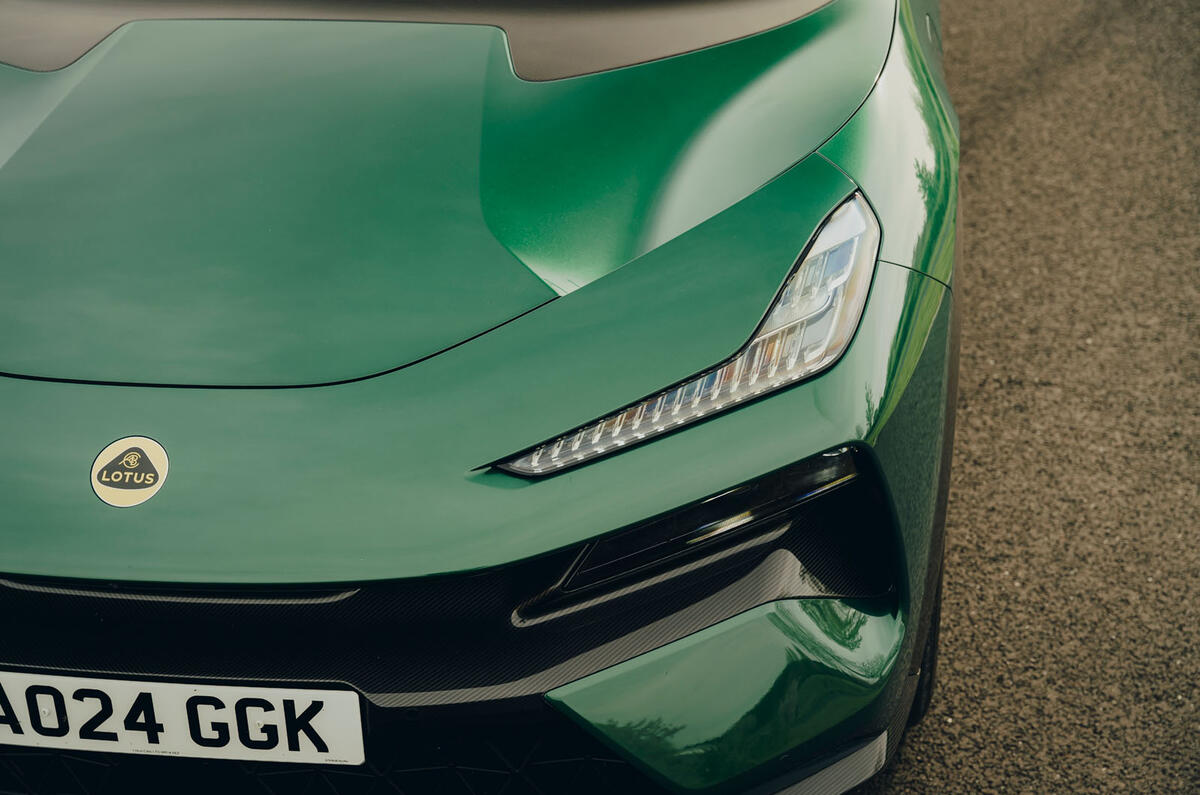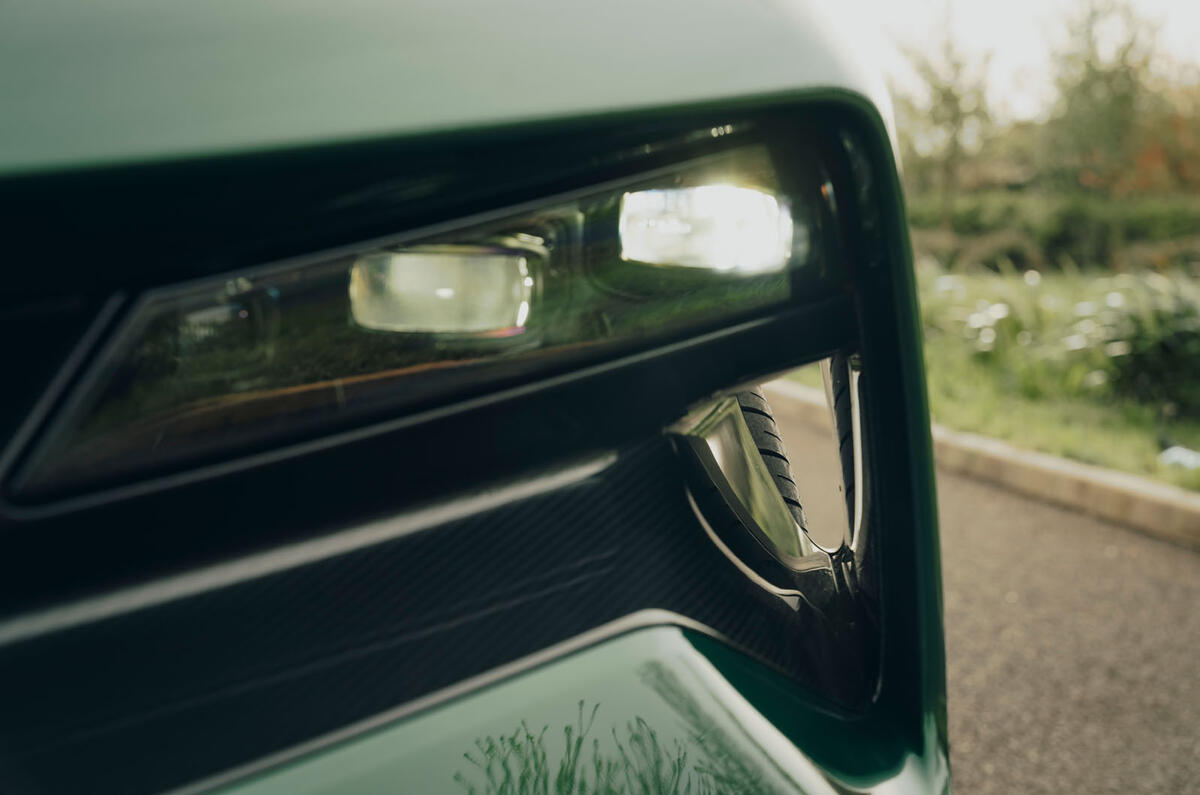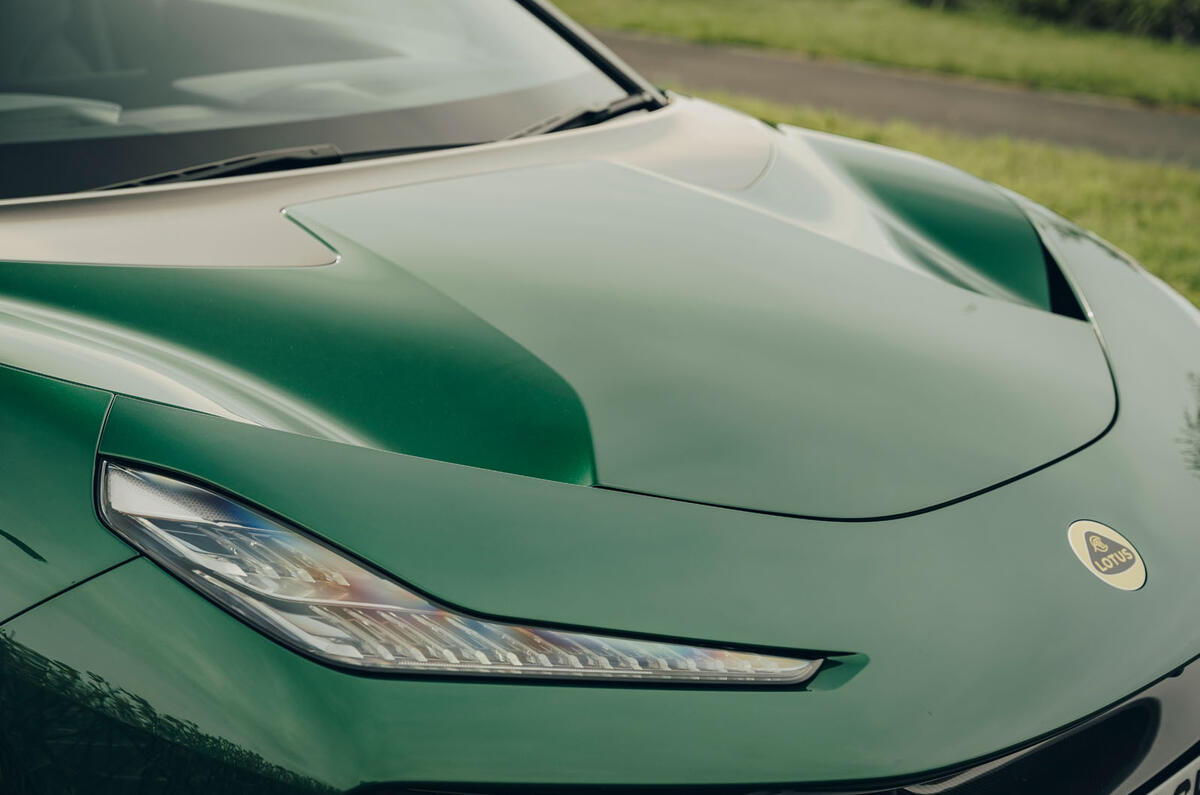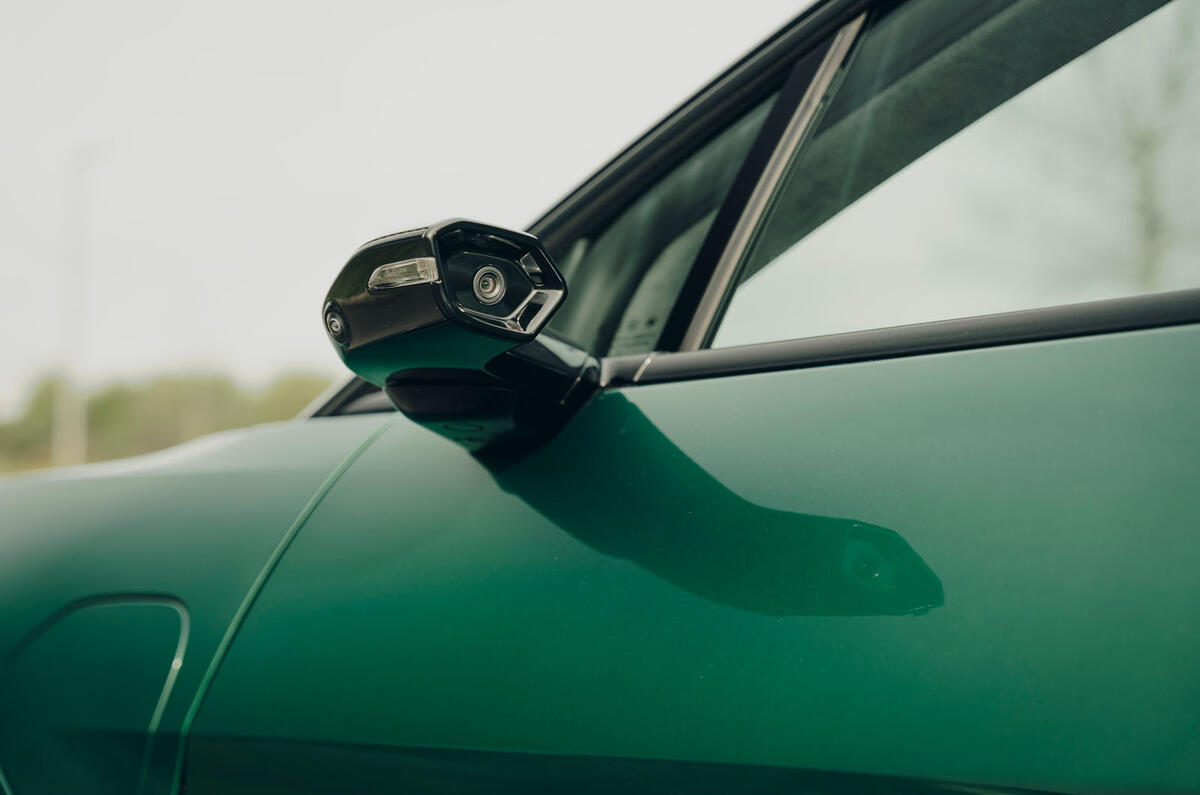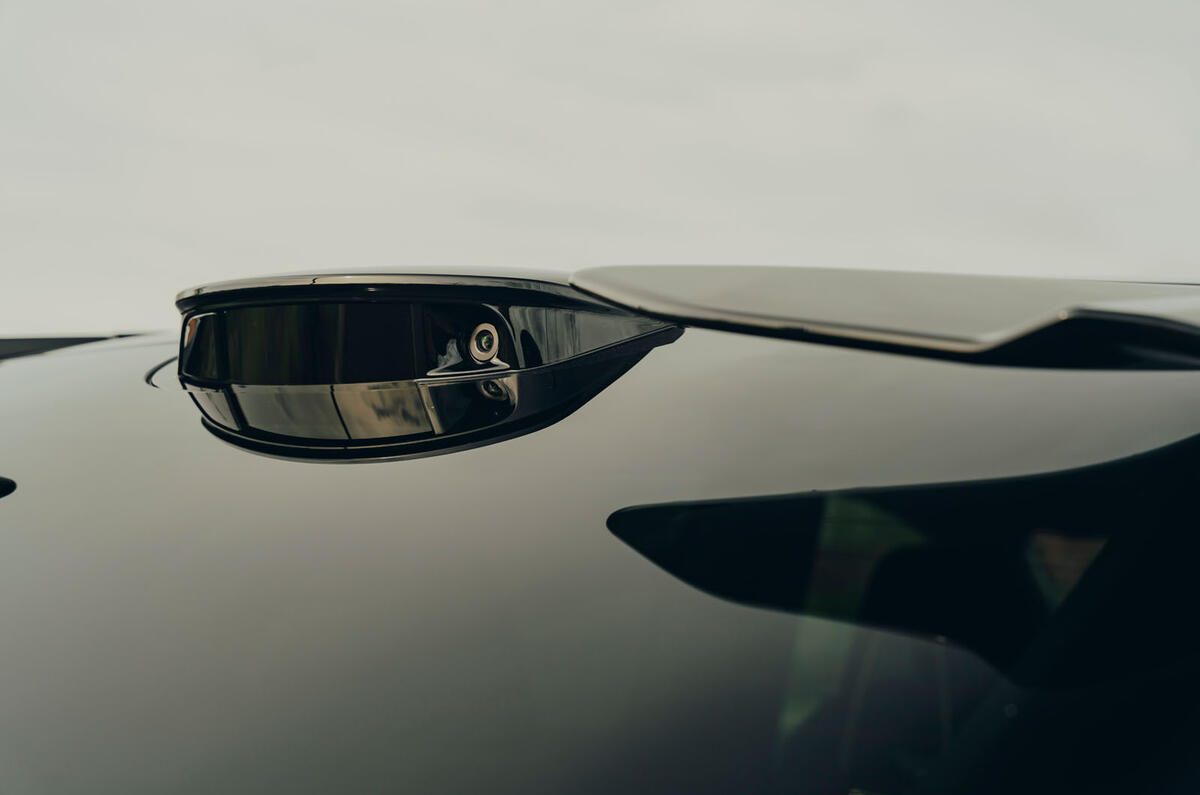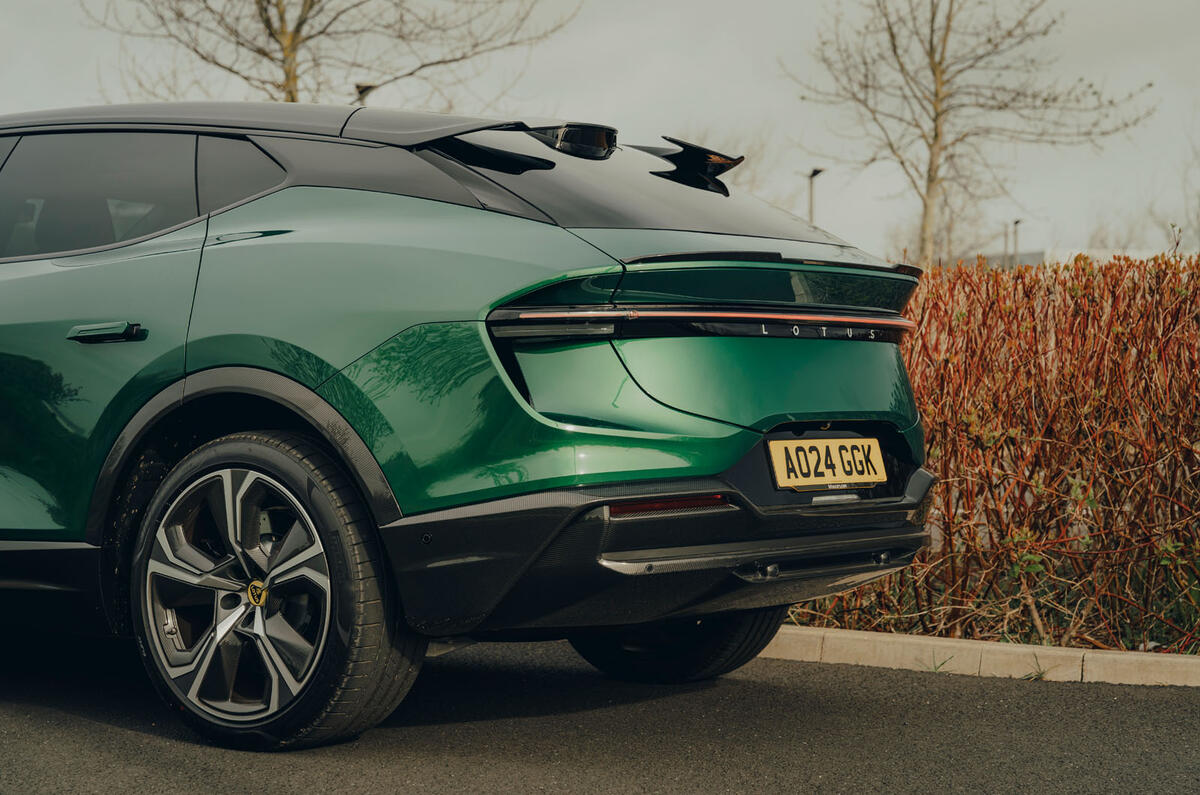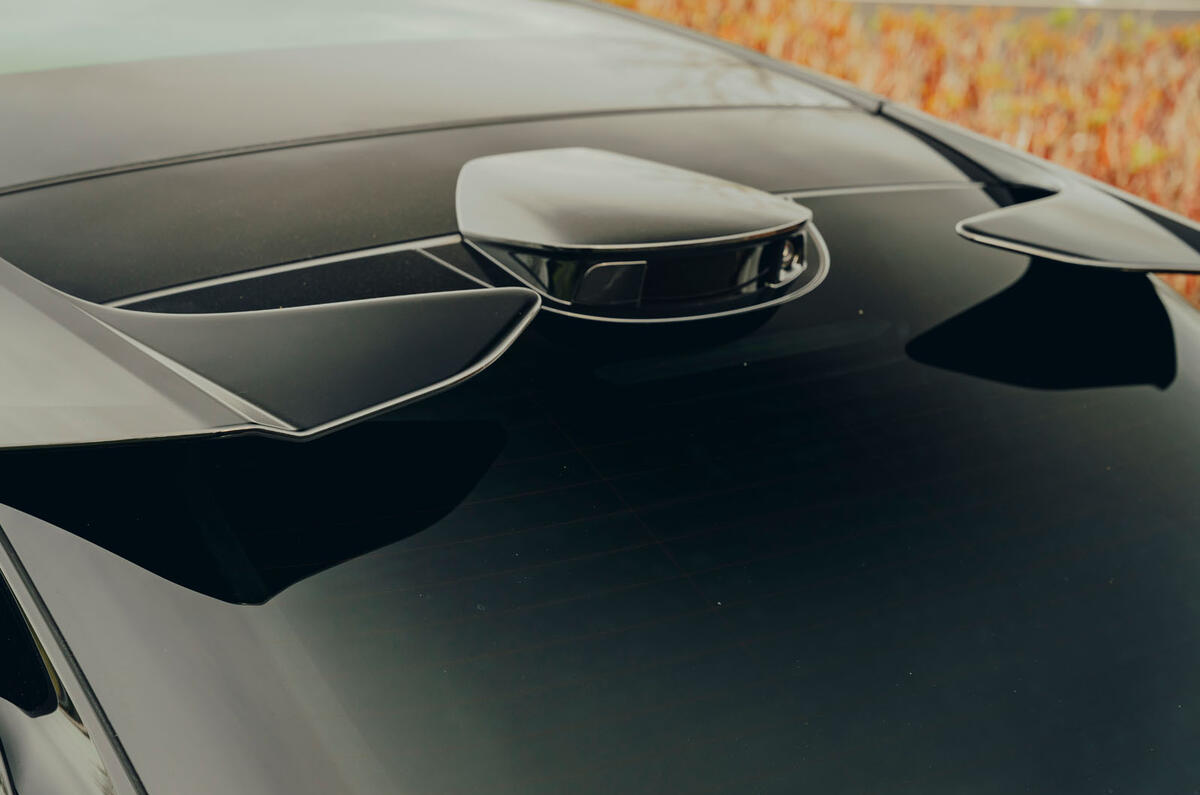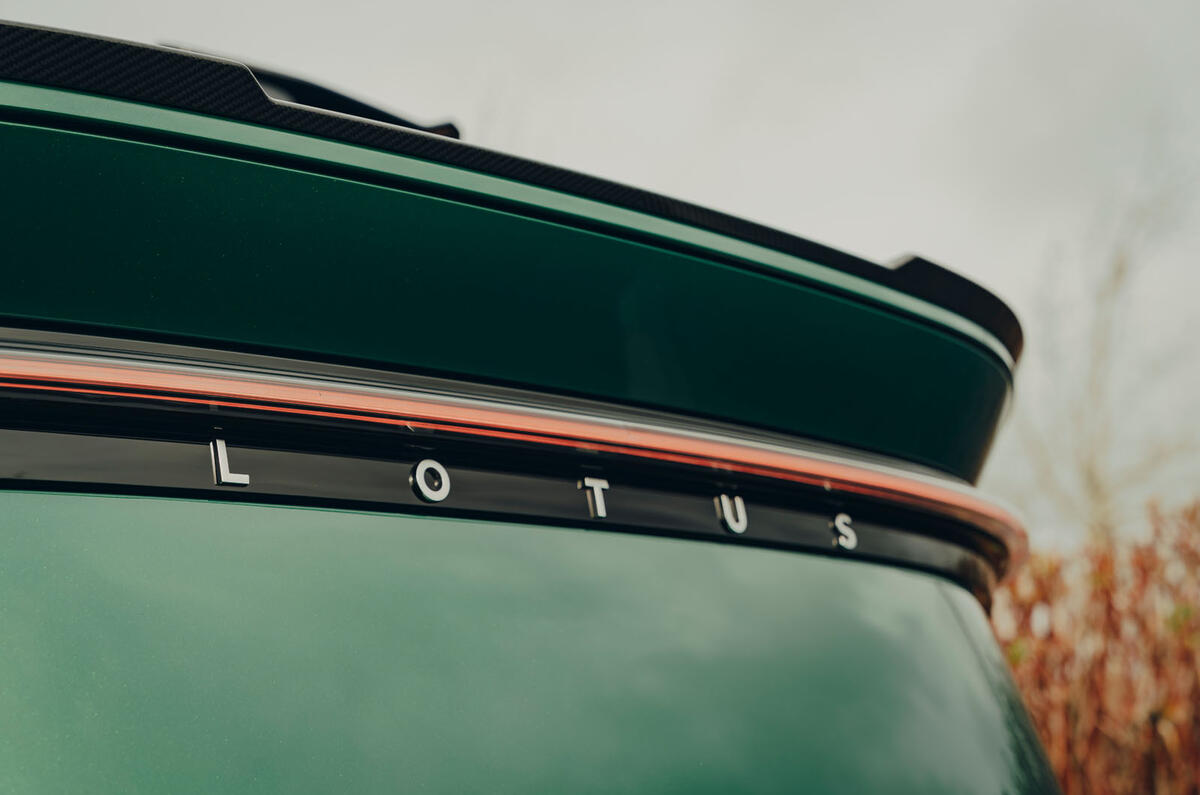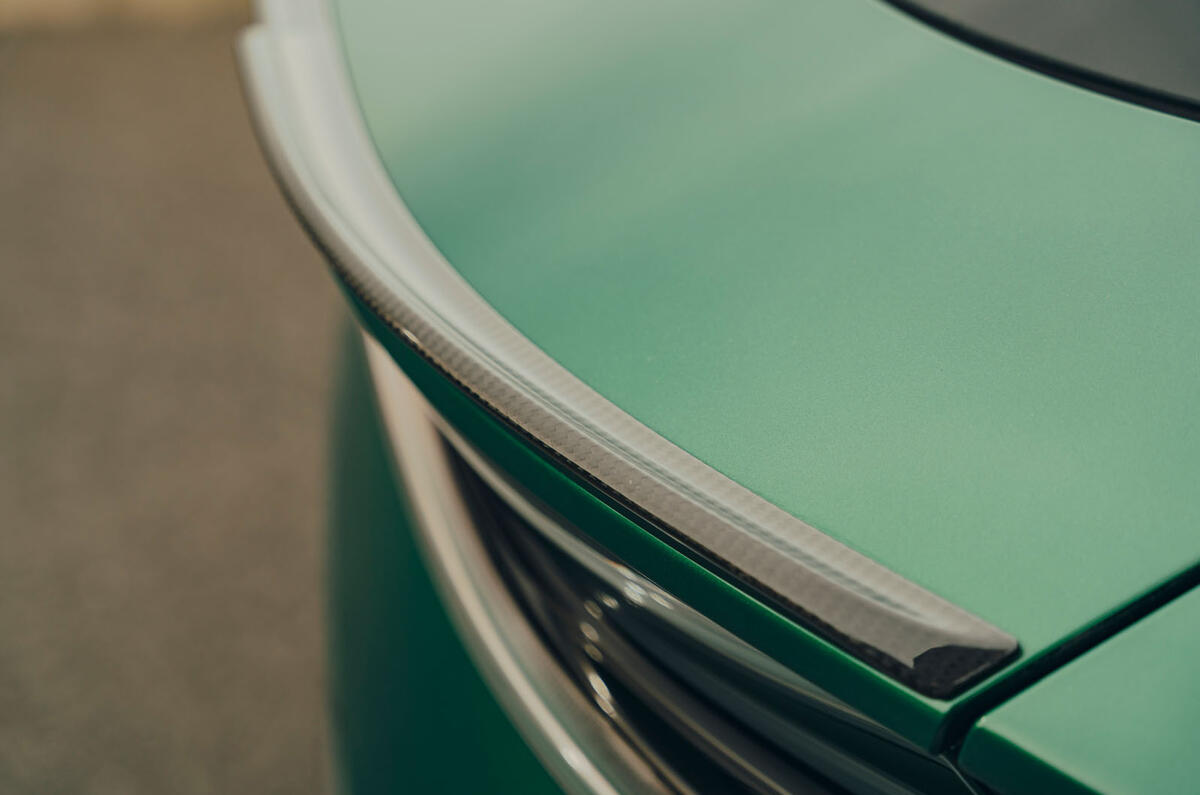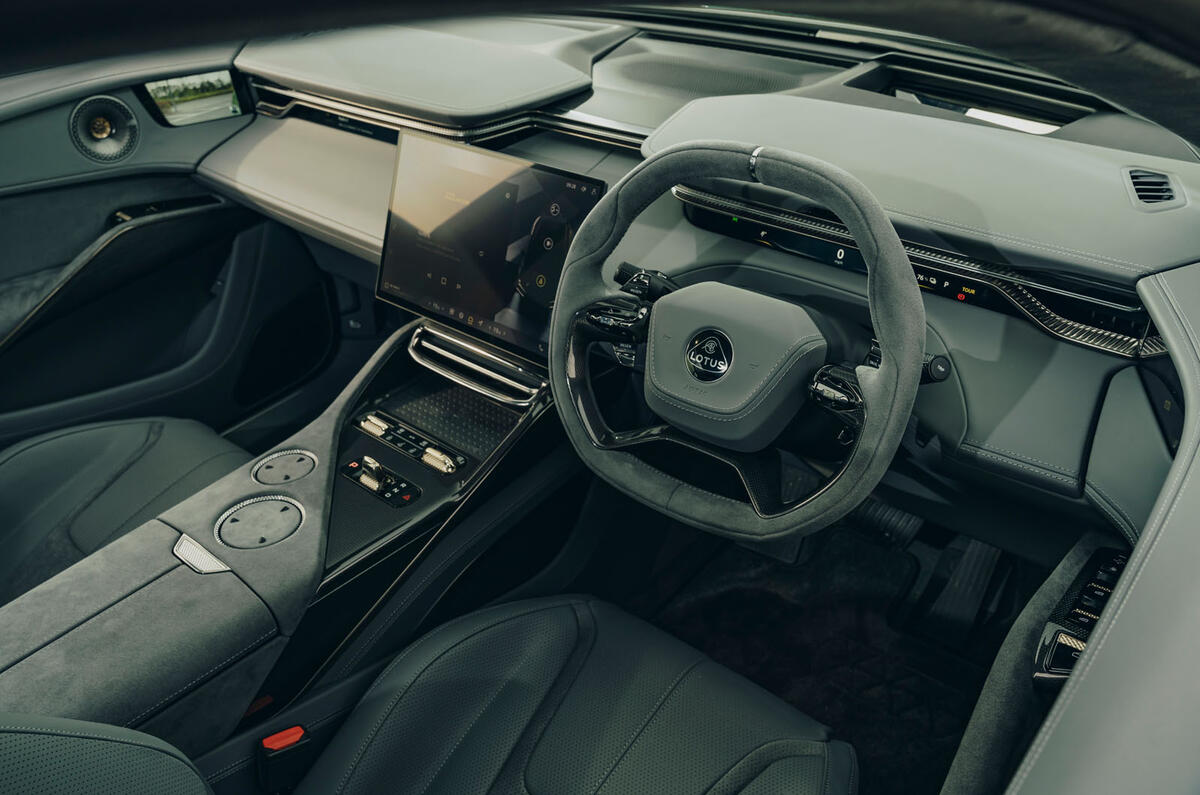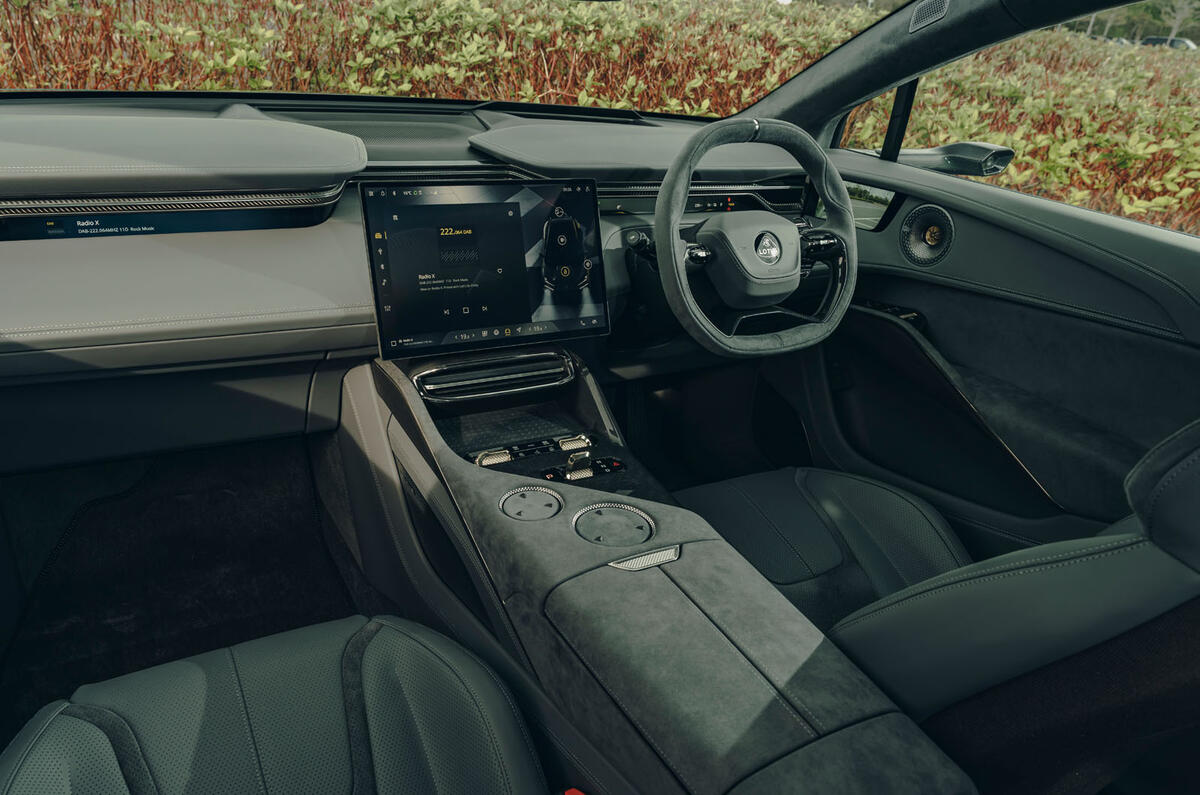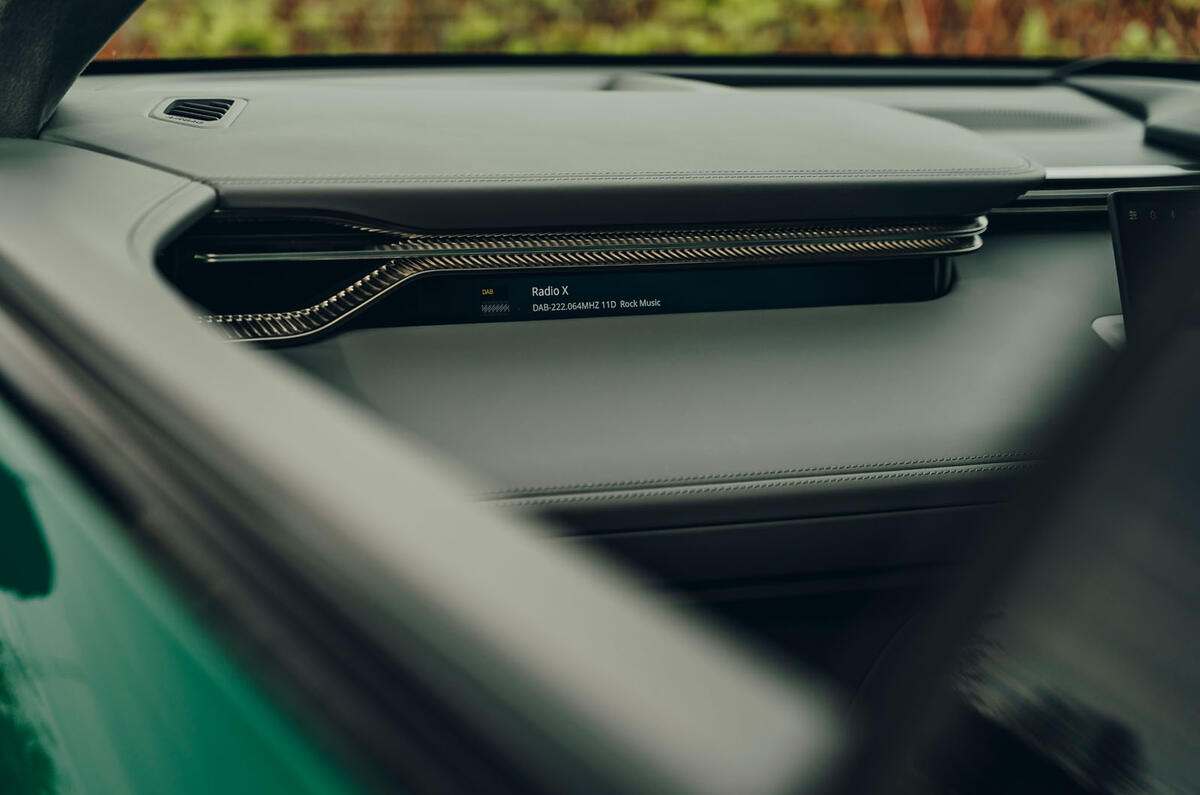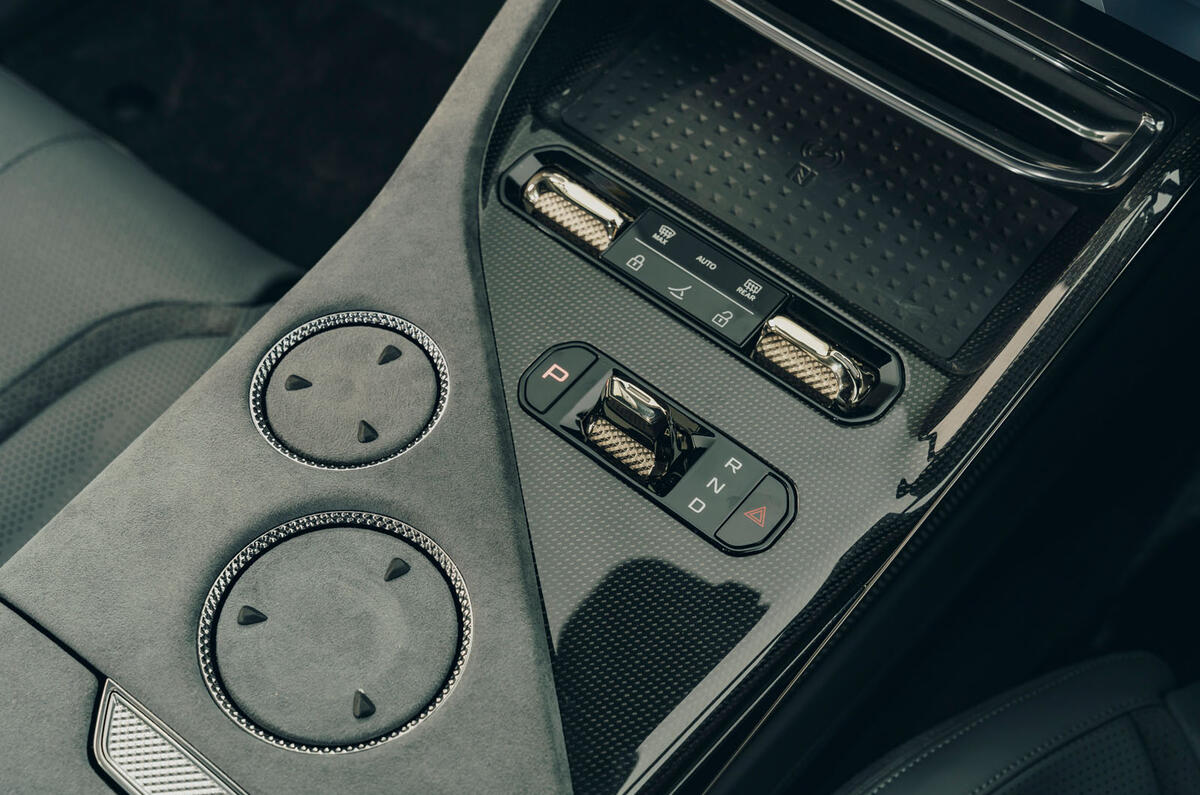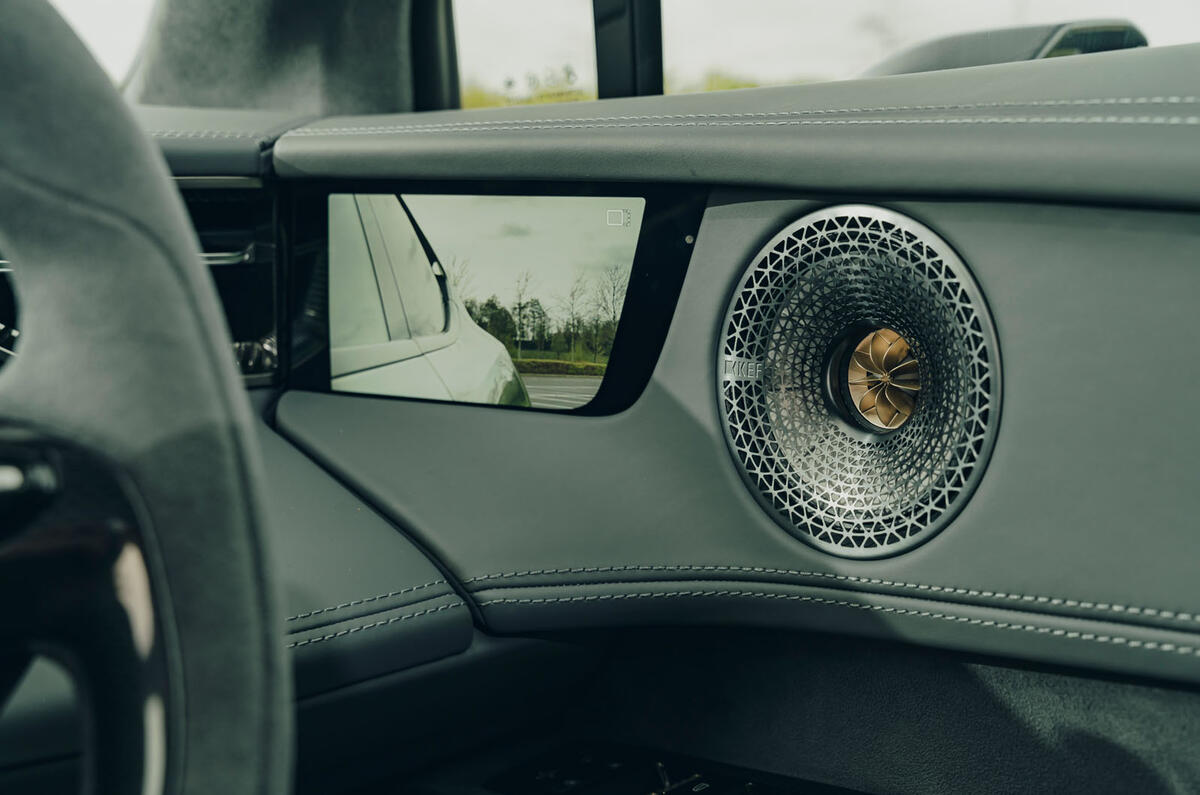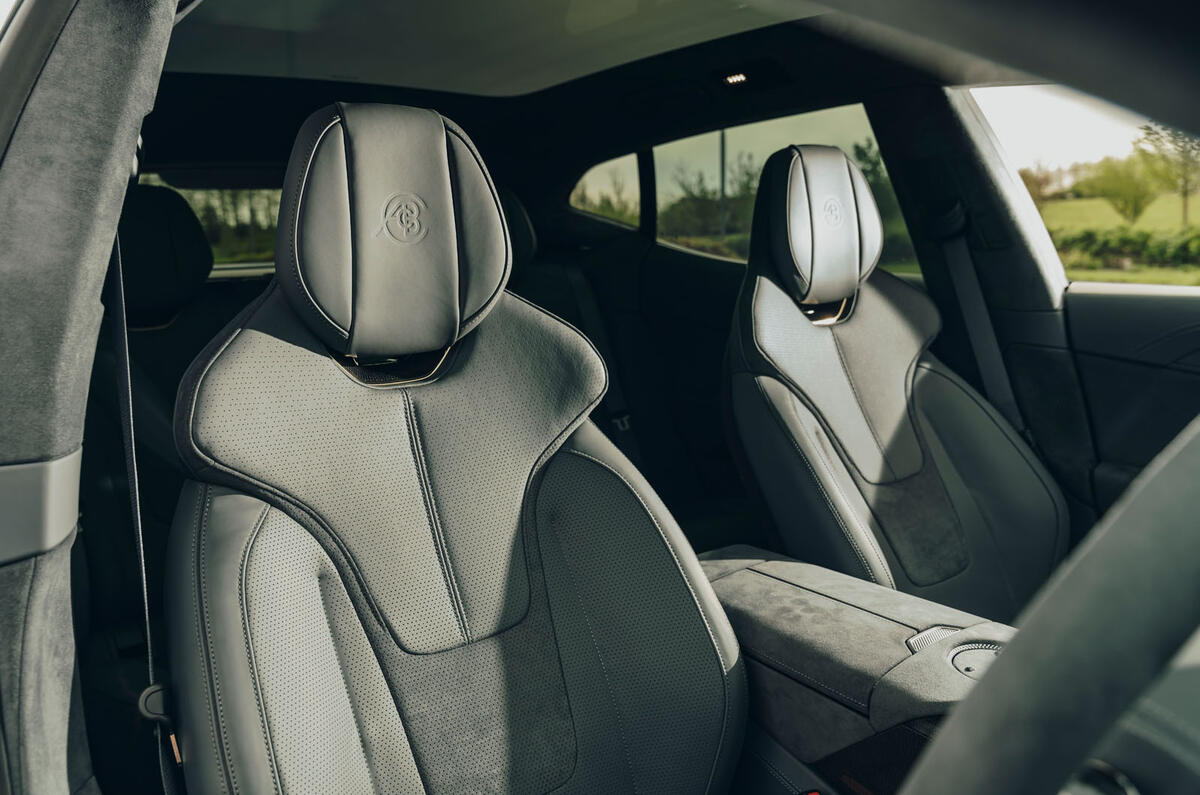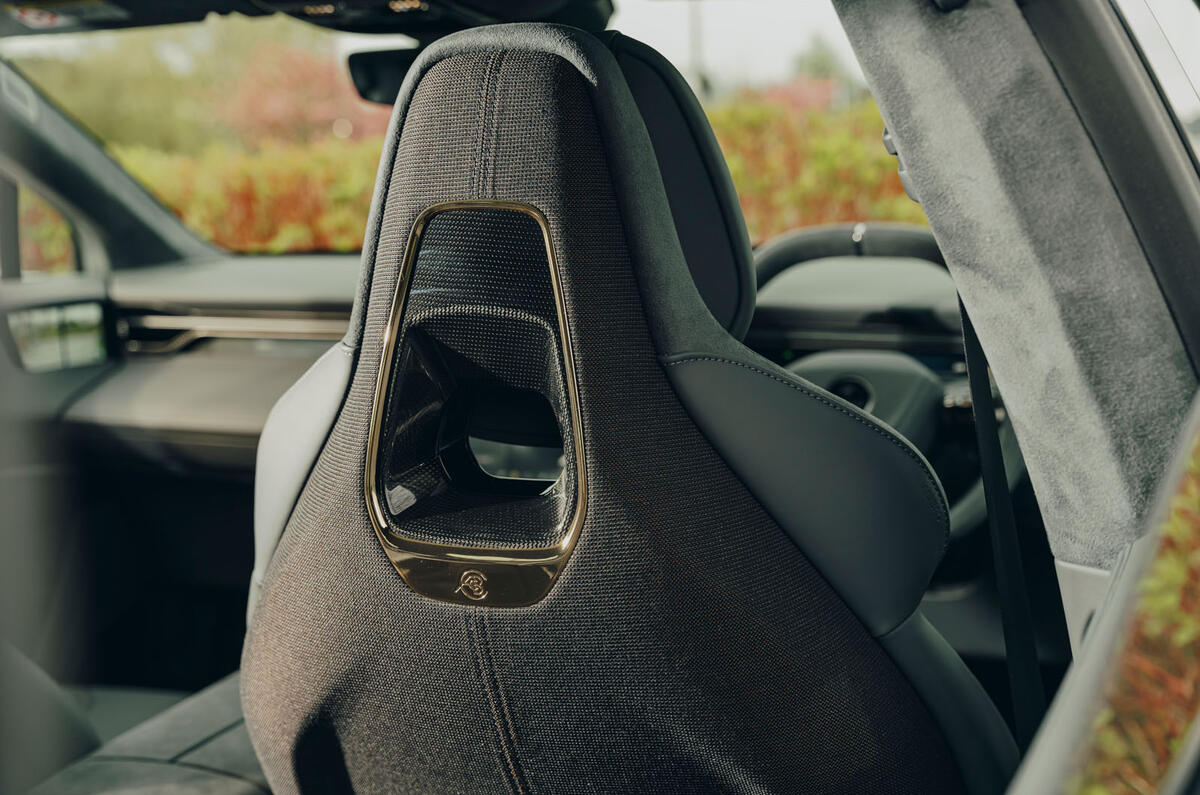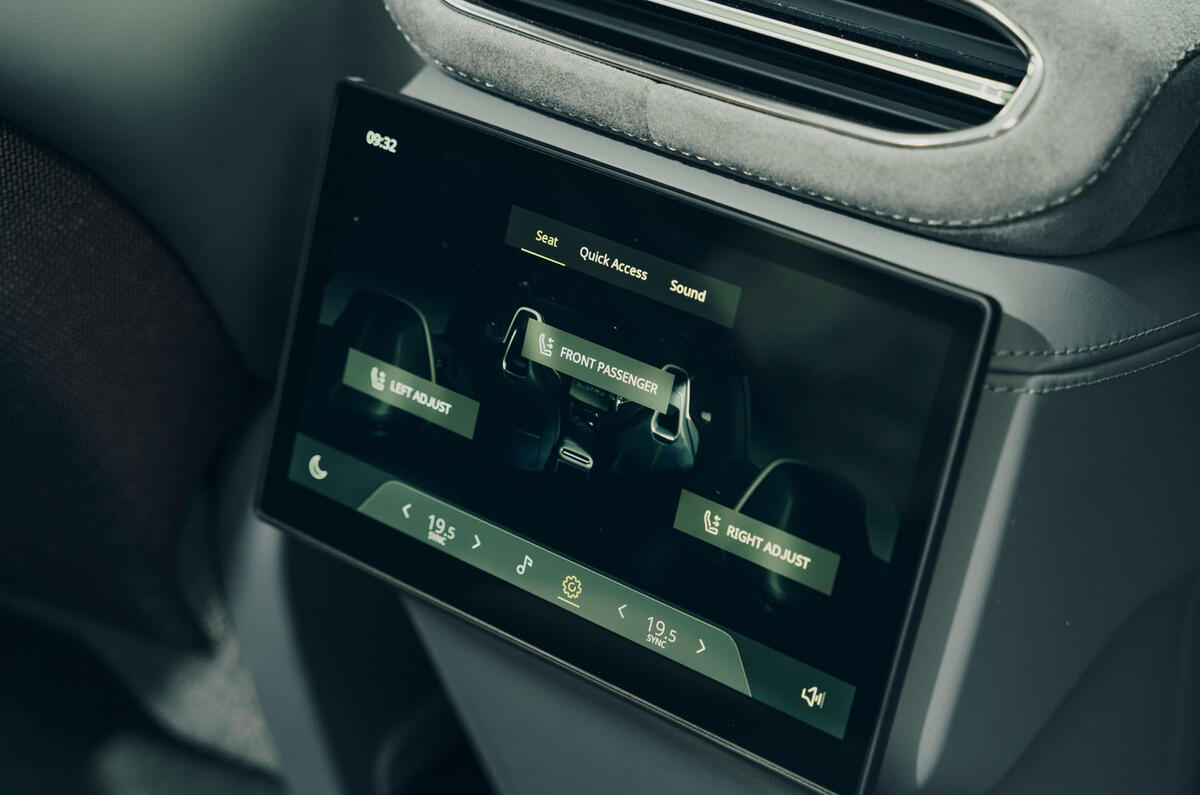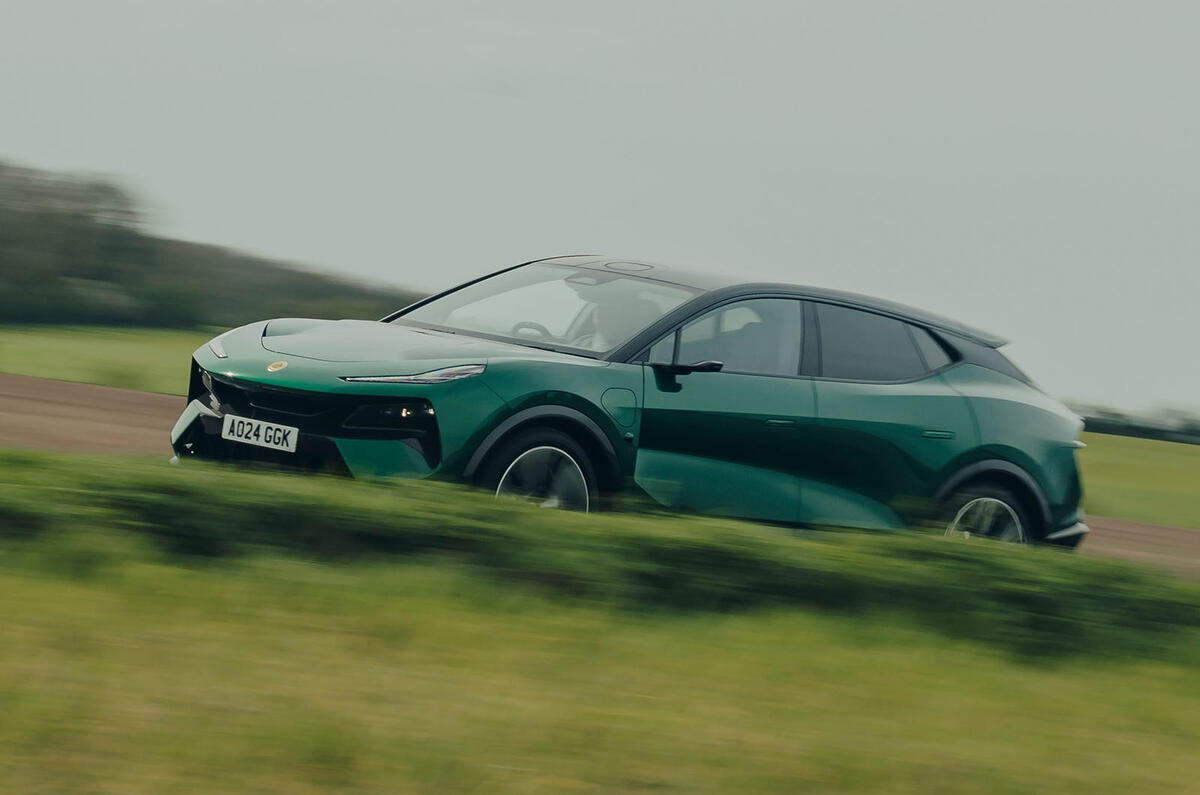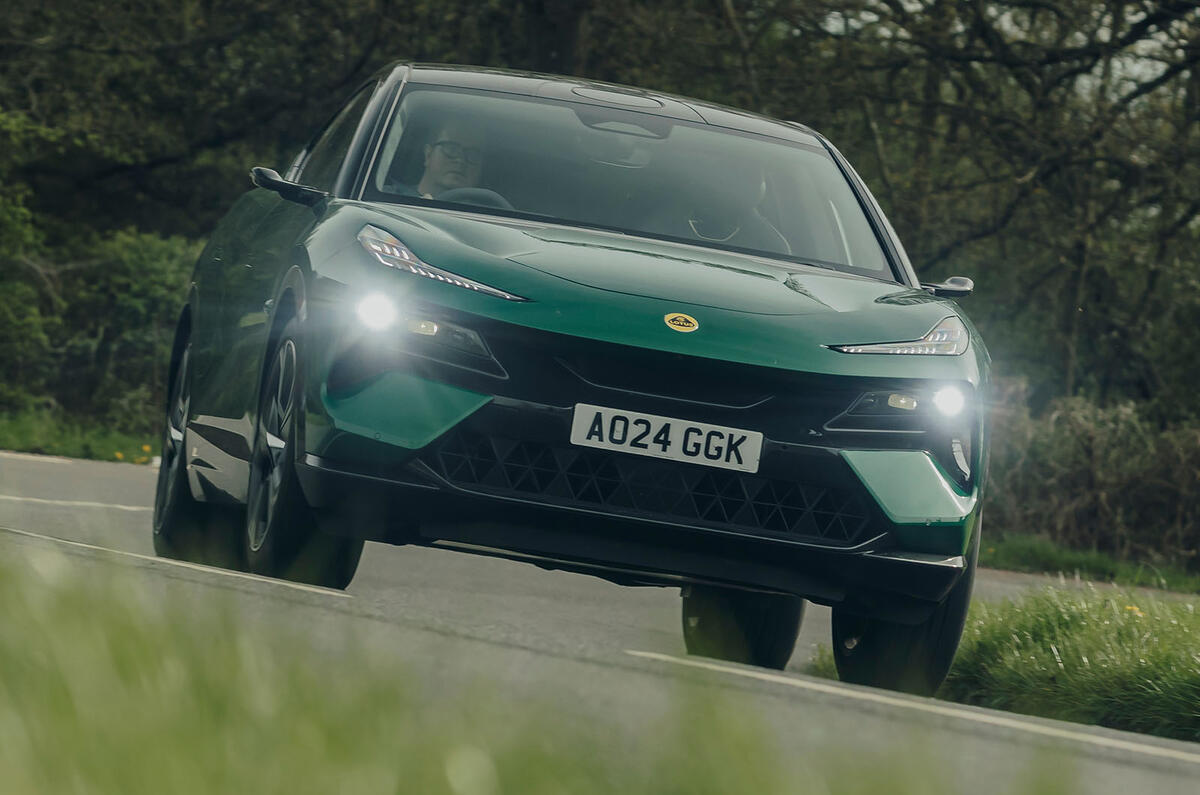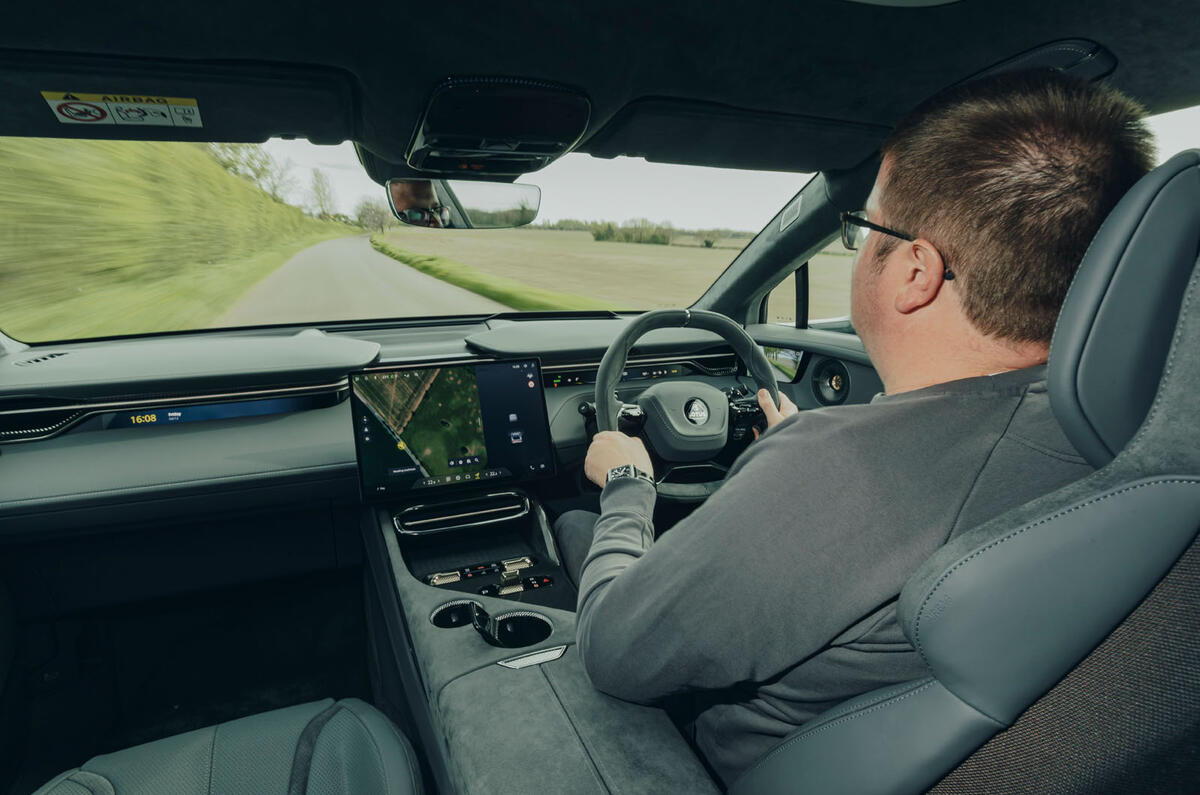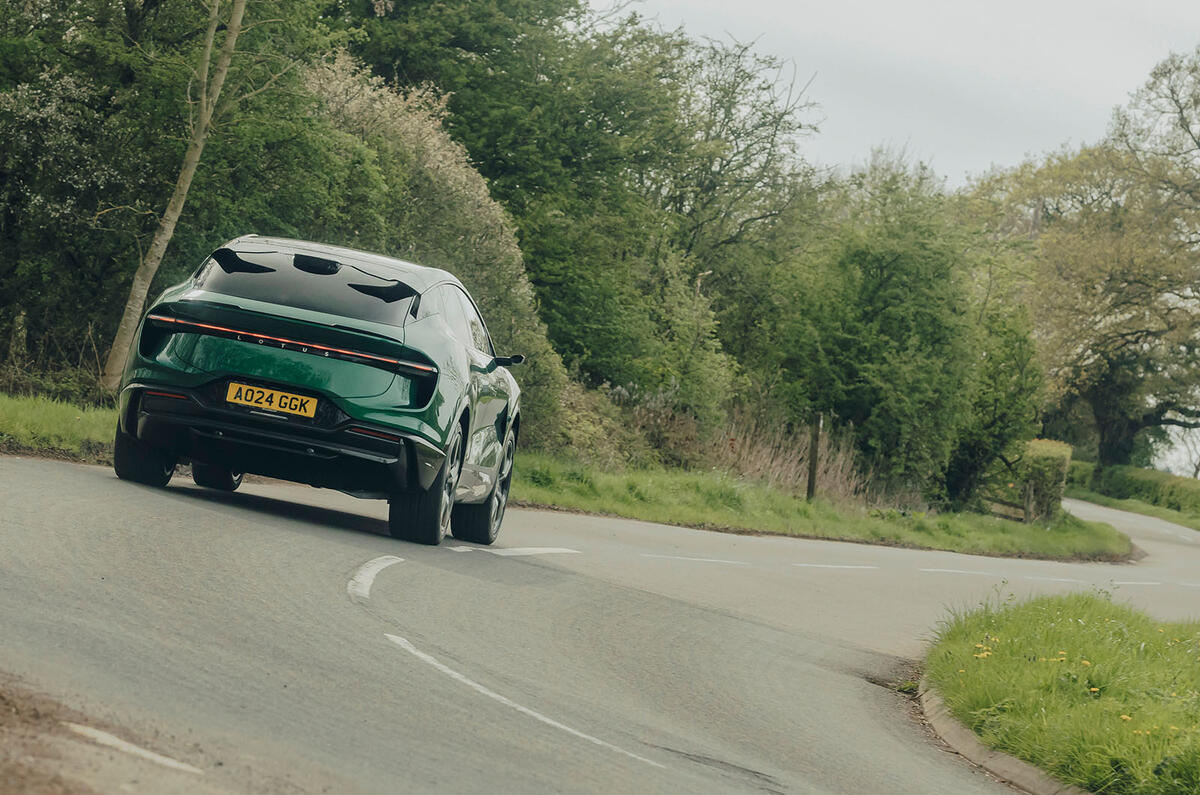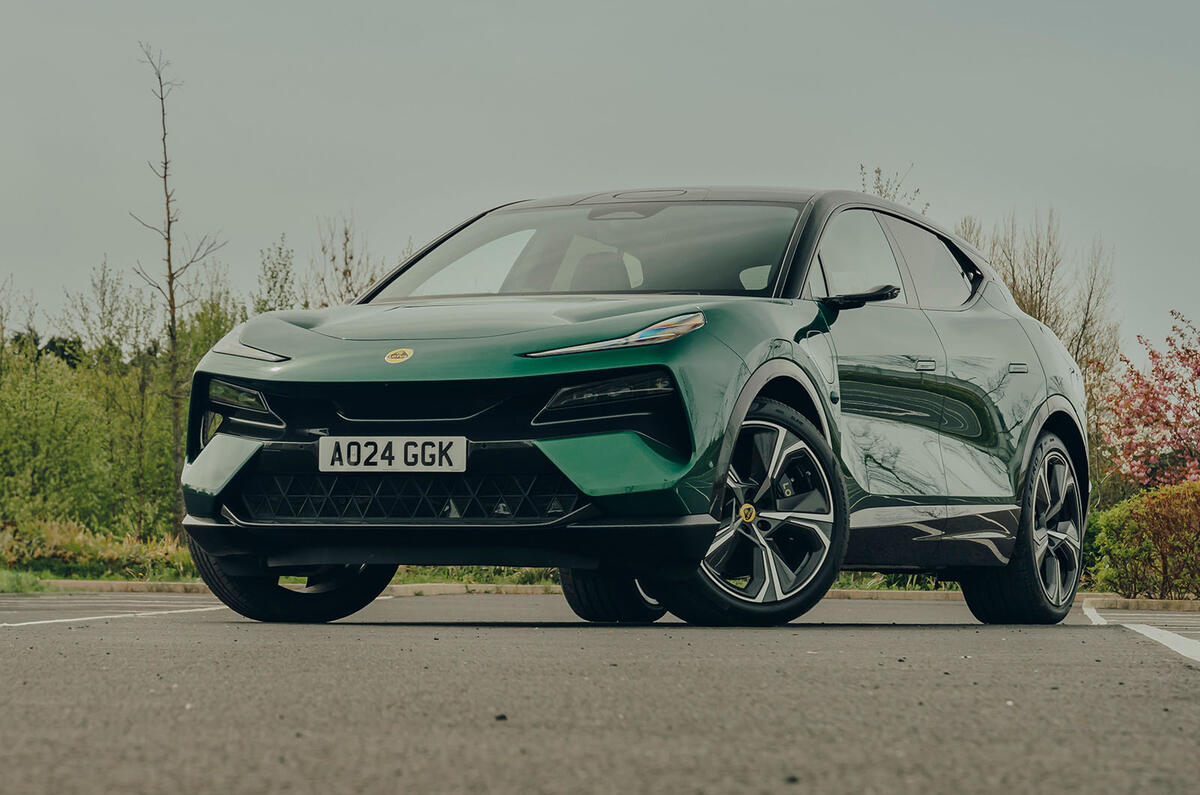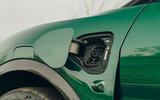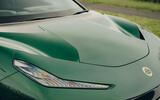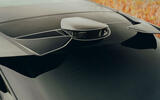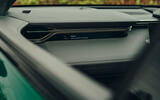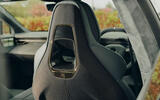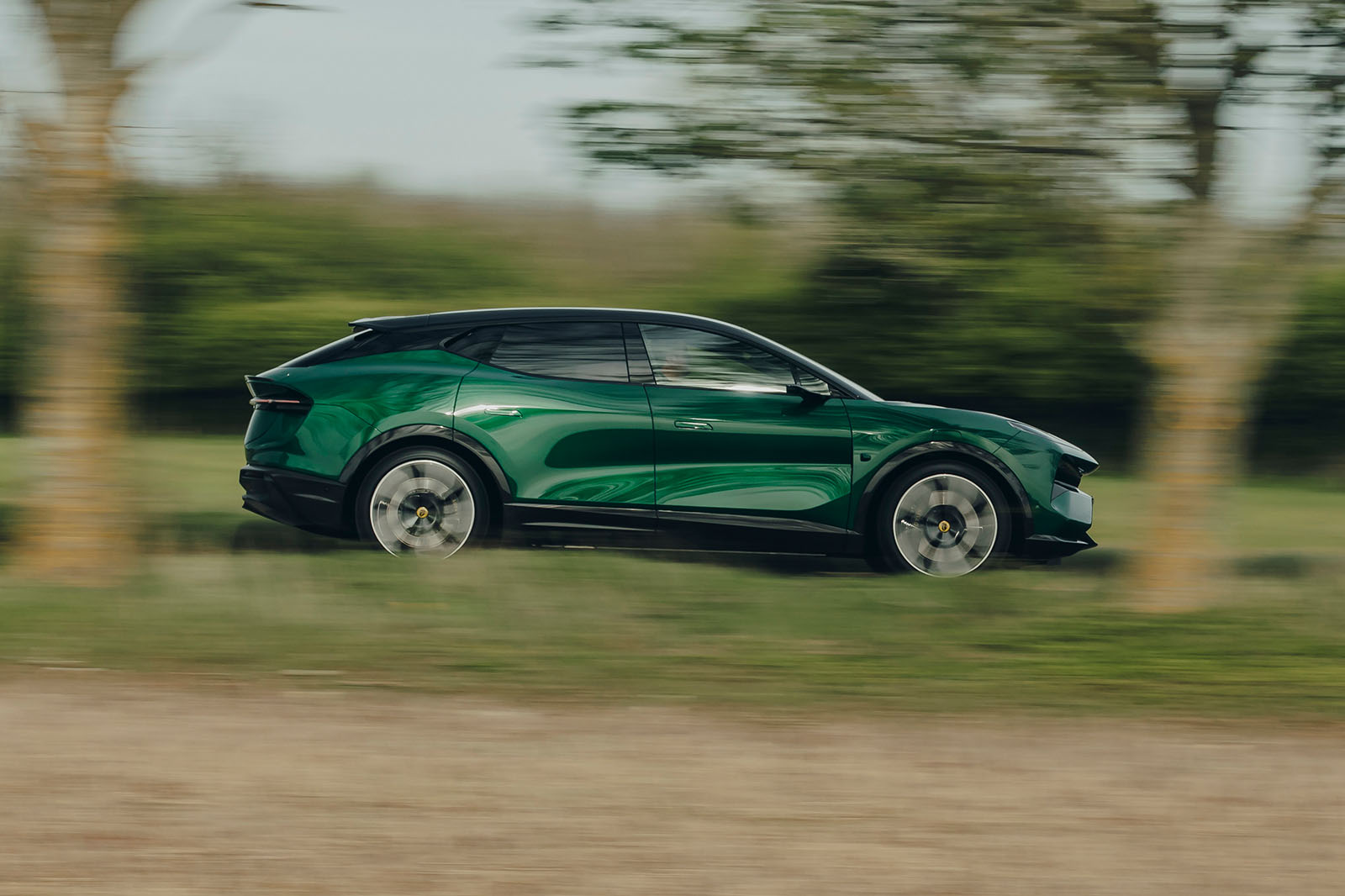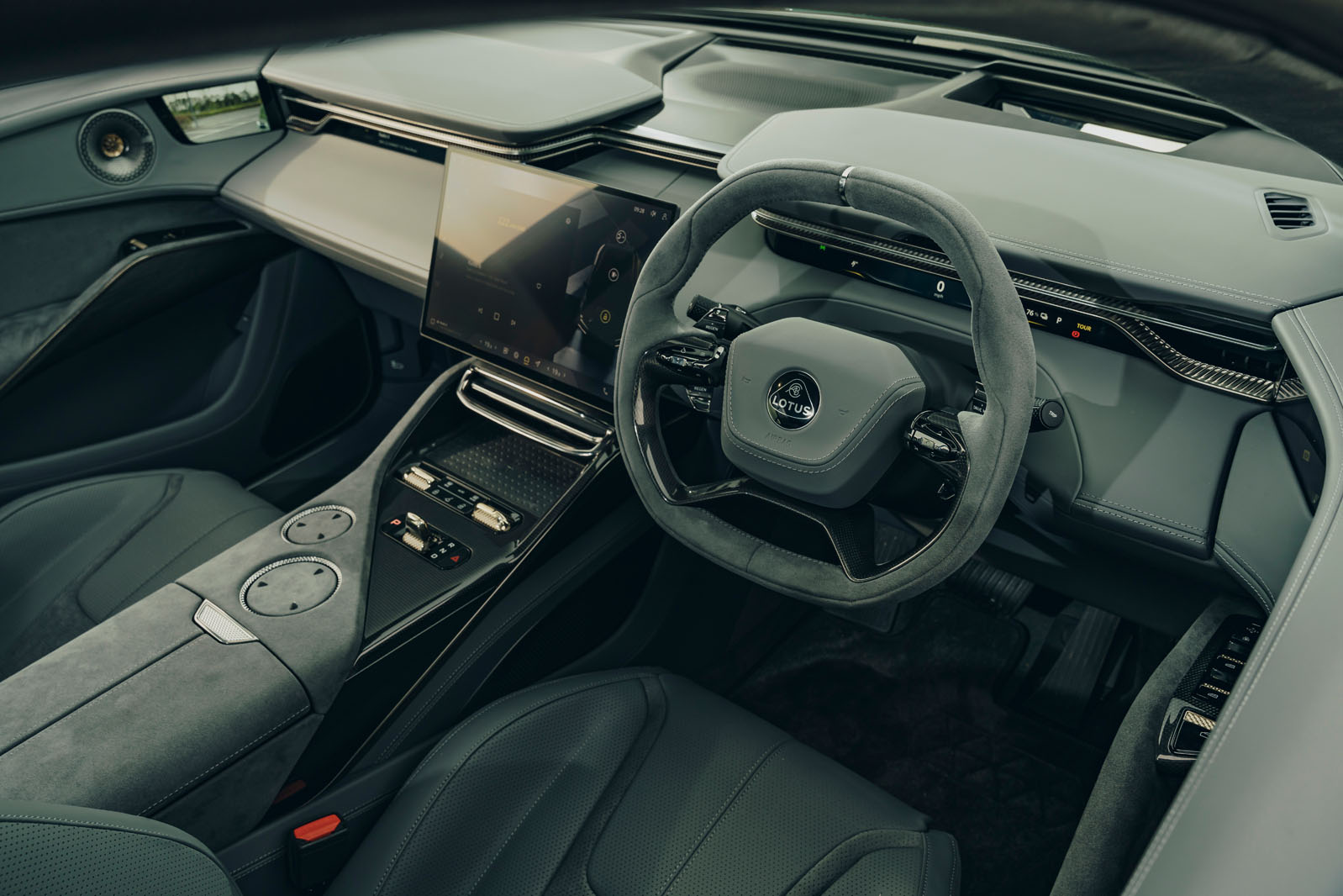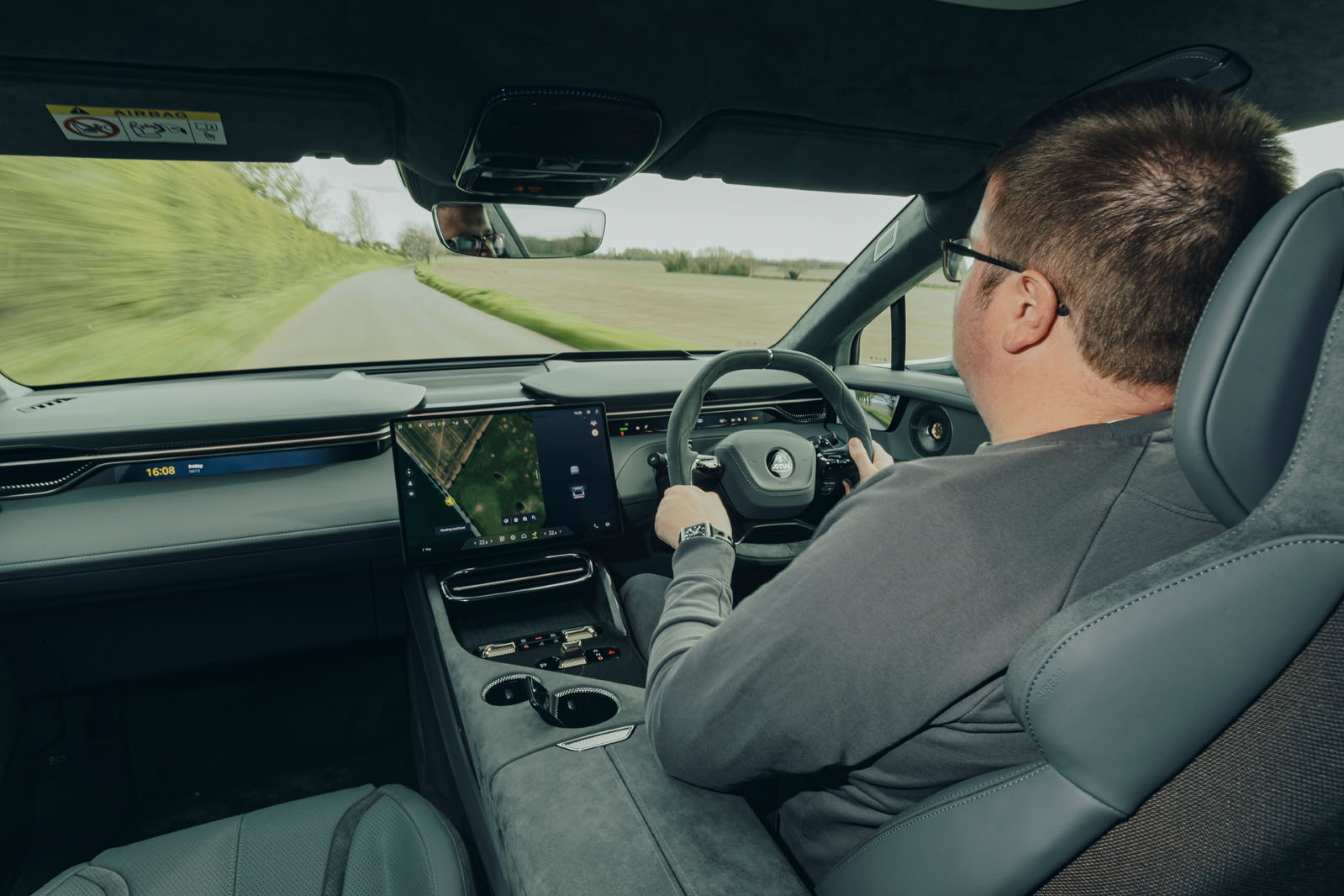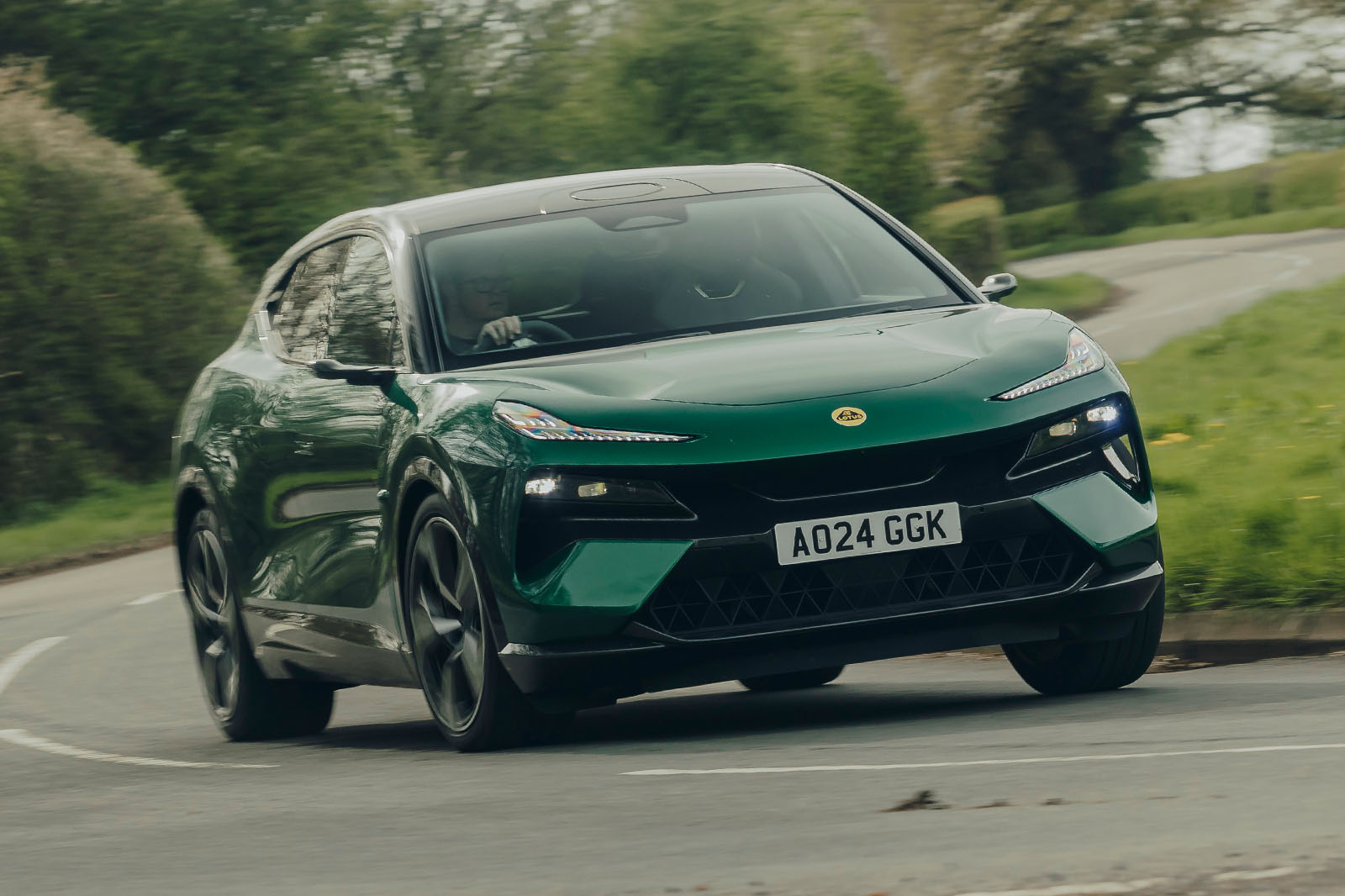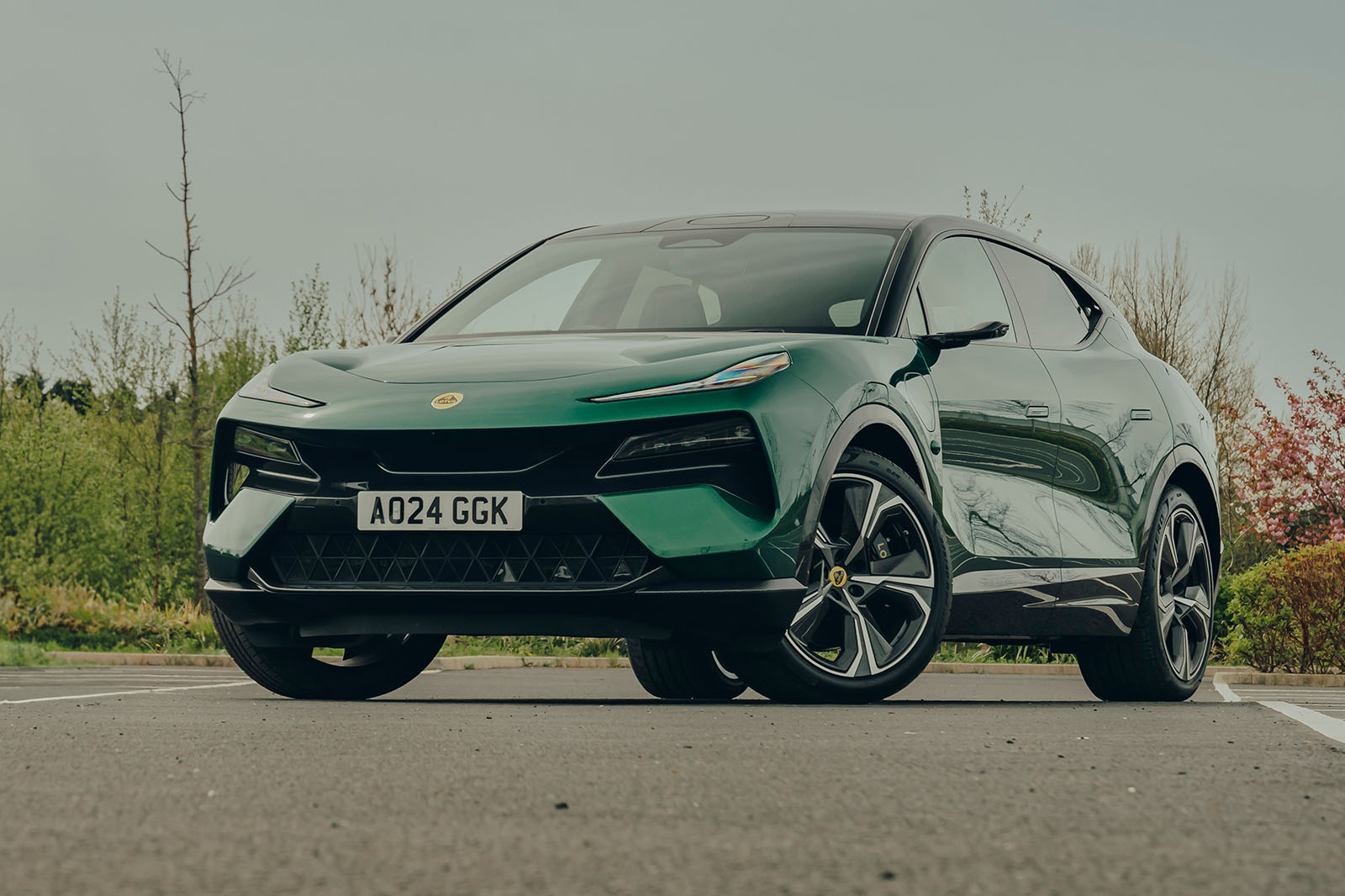The happy trade-off for the Eletre’s imposing and sometimes unwieldy stature is that it feels practically cavernous in both rows, with the lengthy 3019mm wheelbase affording plenty of space for stretched shins and the roofline and sides not so dramatically curved as to restrict head room or push occupants closer together.
The Volkswagen Passat-baiting 688 litres of boot space is a boon too, endowing this super-SUV – somewhat incongruously, you might suggest – with real family-ferrying credentials that bolster its appeal as a fleet purchase.
Up front, a prevailing focus on opulence and digitisation manifests in a cockpit that is starkly removed from the snug, spartan and driver-focused environments to which we’ve become accustomed from Lotus, but in many respects all the better for its radically different conception.
The first impression is of an attention to detail and quality that is surely the measure of anything with a three-pointed star or quartet of rings on its snout. It’s minimalist, sure, but the switchgear is so satisfyingly, authentically tactile and the soft furnishings so decadently upholstered as to cement the Eletre’s standing as a full-blown luxury proposition.
The steering wheel, although gratuitously 'squircular' in a bid to push the Eletre's sporting credentials, is gratifyingly chunky and the controls hosted upon it sensibly arranged. There are enjoyably weighty paddles behind it for adjusting the regenerative braking and drive mode and plenty of reach and rake adjustment in the column.
Conventional buttons and switches are otherwise in short supply, naturally, but there’s a nice clunky weight to the window switches and column stalks, and they are all about where they should be.
You settle into the recumbent, straight-legged posture you would expect of a grand tourer behind the suede-trimmed wheel. The roofline doesn’t extend far above your head but you do have a raised vantage point of the world outside.
The car’s primary and top-level secondary controls and displays are a little unconventional but quite well thought out. A slim strip of digital instrument display sits behind the steering wheel, conveying a sensibly chosen selection of information (and it extends across the dash, in front of the passenger, to relay relevant information there too). But behind it is a usefully large head-up display and to the driver’s left a 15.1in landscape-oriented touchscreen display.
Before much longer, you will begin to realise where Lotus has spent so much of its development budget. The material quality level – the way its cabin is presented and finished – is really ambitious. It both looks and feels genuinely lavish and luxurious enough to stand comparison with any rival you like – even Bentley. The door speakers are works of sculptural artistry; the cupholders are upholstered and engineered with slowly rising, damped recesses. There hardly seems a single fixture or fitting that hasn’t had serious money spent on it, all ready to convince a new kind of customer that a Lotus can be a world-class luxury car.
More divisive are the digital rear-view mirrors, which take a bit of getting used to and don’t offer the same degree of adjustment as you get with a traditional mirror. Checking the position of your back wheels, for example, is no mean feat. Attention was also drawn to the prominent exposed speaker grilles, which were variously compared to a piece of star anise – or, less favourably, a cat’s rear end.
The boot is usefully long and wide. It could swallow a lot of luggage, although it’s shallower than those of other big SUVs, and may be less likely to accommodate really bulky cargo as a result. If you go for individual rear chairs, you don’t get folding second-row seatbacks, which hits outright carrying versatility.
Passenger space within that second row itself is predictably generous and occupants are well provided with innovative storage areas and a touchscreen console of their own. Outright passenger comfort is limited by the car’s high cabin floor, however, and by the slightly thin, mean-feeling padding of the seat cushions.
The Eletre’s 15.1in infotainment touchscreen seems slightly suspiciously over-designed. It has several attractive backgrounds, looks very neat and responds quickly, but it’s not as easy to use as it might be, with slightly fiddly small shortcut icons and a menu structure that requires a little too much to and fro not to be a distraction while driving.




